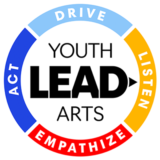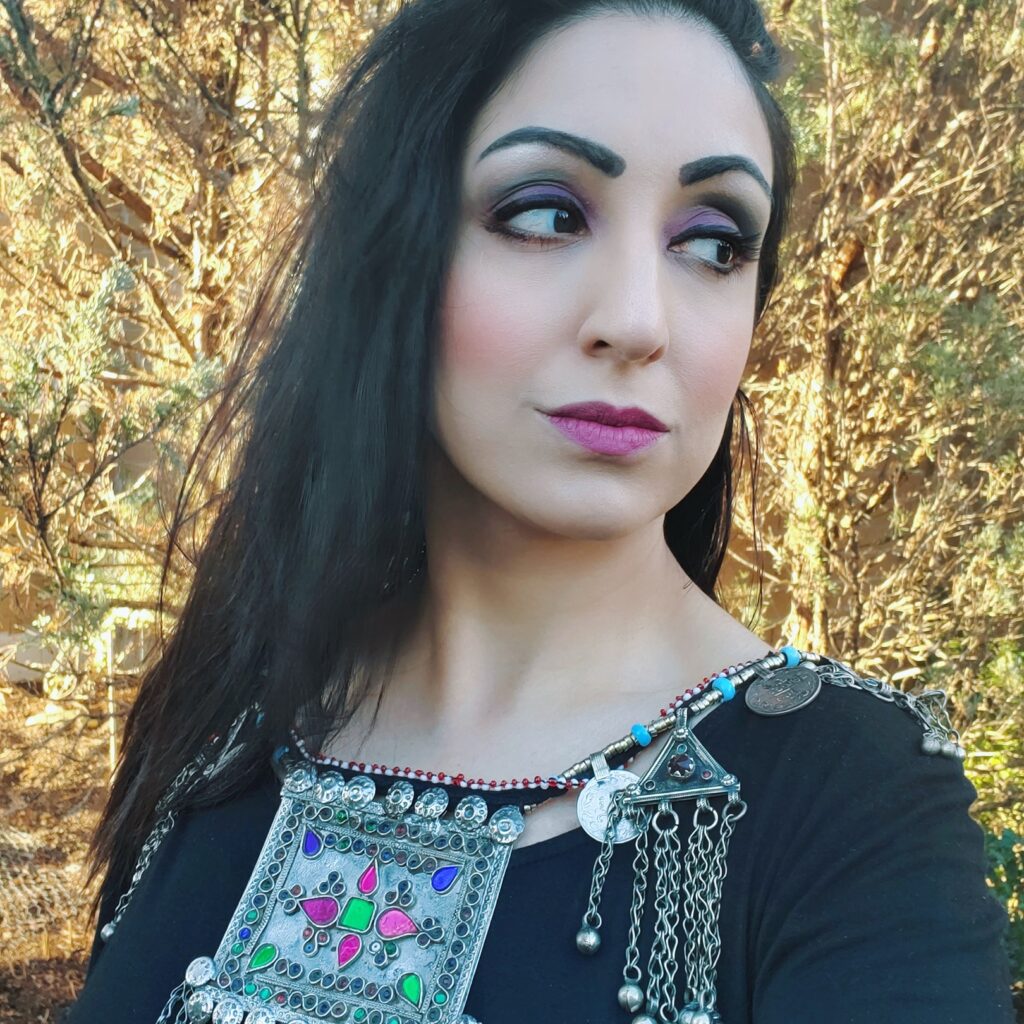(Lori Sherritt-Fleming, a youthLEADarts mentor, is the author of this blog. Stand-by for blogs from some of our other youthLEADarts team this week!)
“Awareness of the mandala may have the potential of changing how we see ourselves, our planet and perhaps even our own life purpose.” -Peter Fenner
The air was charged with excitement today as youthLEADarts students checked in, curious and energized to meet guest mentor, Sheniz Janmohamed. Sheniz took everyone on an empowering journey using words, imagery, found objects and mandalas, a journey that helped us all to identify as leaders and changemakers.
Mandala, Sheniz shared, is a Sanskrit word that means circle. The circle, as Elder Amanda has mentioned, has similar meanings in many cultures. It symbolizes the idea that everything is connected. Sheniz began by connecting us to one of her many artforms, nature art, and shared images of some of the many beautiful mandalas she has created using materials found outdoors.
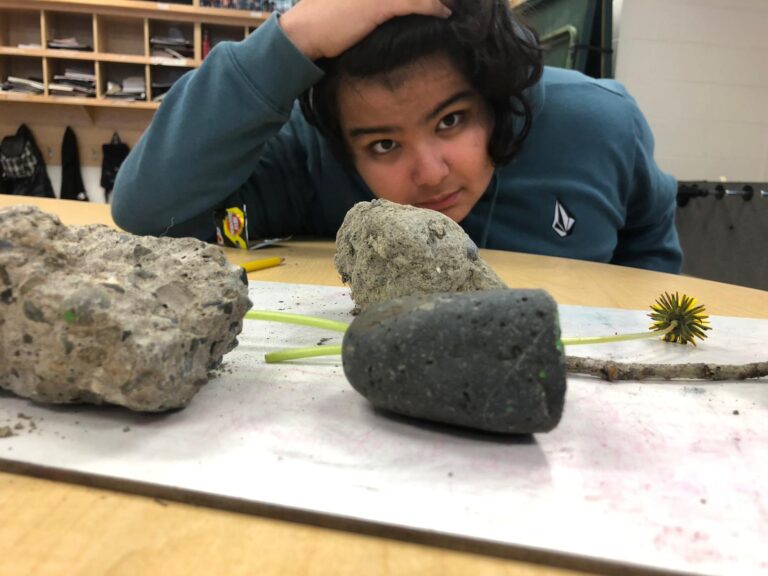
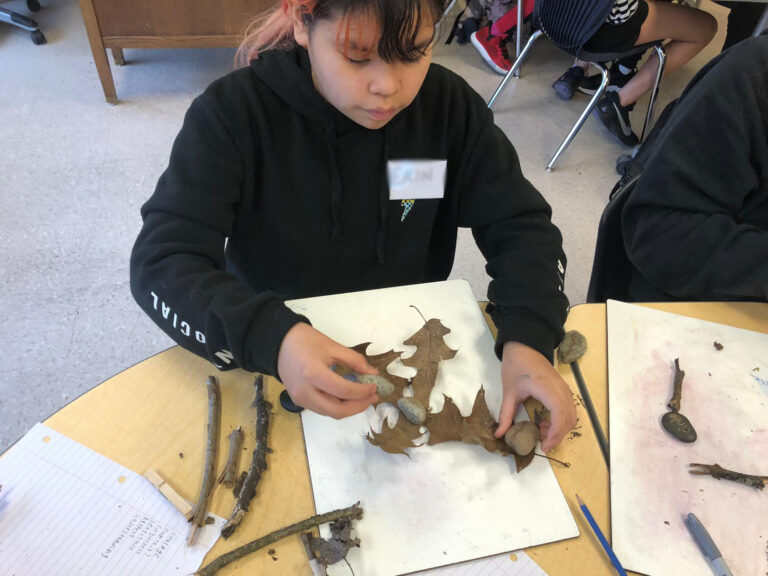
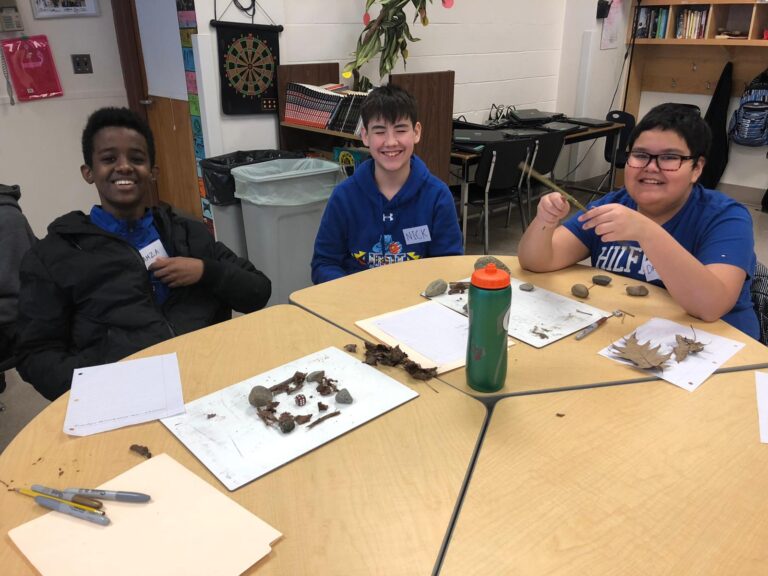
Each mandala had a story, a place, a meaning. Each mandala took thought, play, meditation, patience and practice to create. Each was art, each was temporary, each was unique, each was filled with varieties of colour, shapes and patterns. Sheniz shared the story of a retreat she participated in where participants made a mandala from different colours of sand. It took them three days to complete. People put intentions into it. It was dedicated to the healing of both the earth and humanity. At the end of the three days, the mandala was repurposed, transformed. All of the sand was gathered in the centre of the mandala. The patterns disappeared, all was mixed and a bag of the mix was given to each participant to ‘return to water’, to be placed back into the larger cycle of nature, to connect to something else, somewhere else.
YouthLEADarts students had been asked to bring their own found materials from their community to use in today’s workshop. Sheniz asked students to reflect on words or values that good leaders possess. Words like community, selflessness, strength, loyal, loving, tolerant, trustworthy and resilient came up. She then asked each student to choose five words and write them on their rocks in gold and silver sharpie.
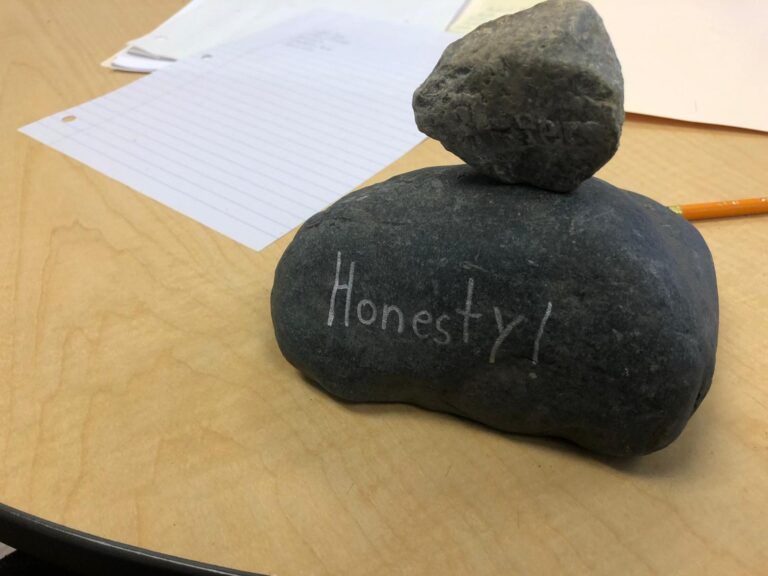

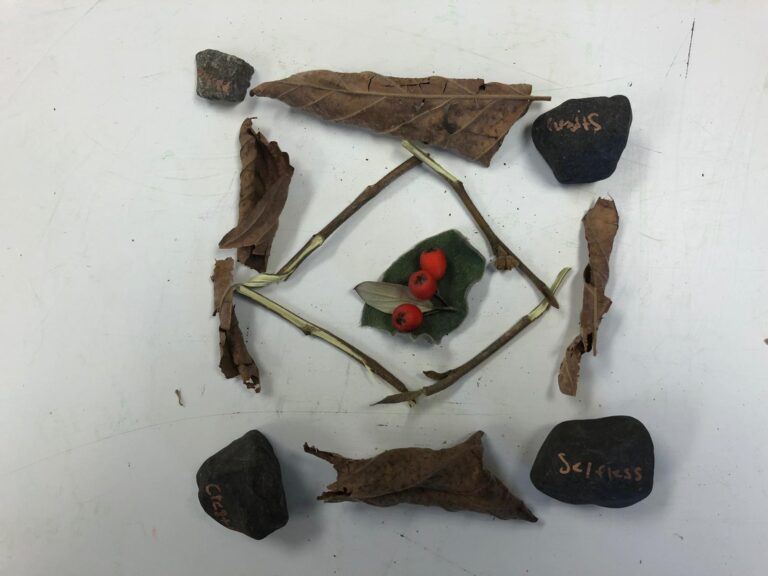
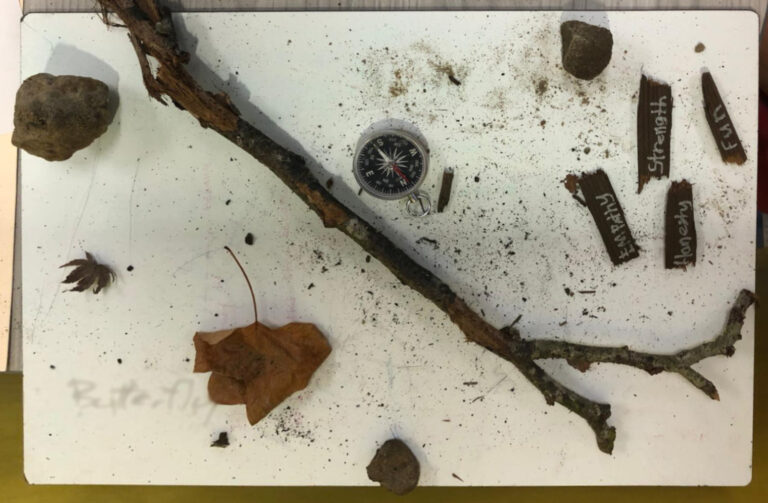
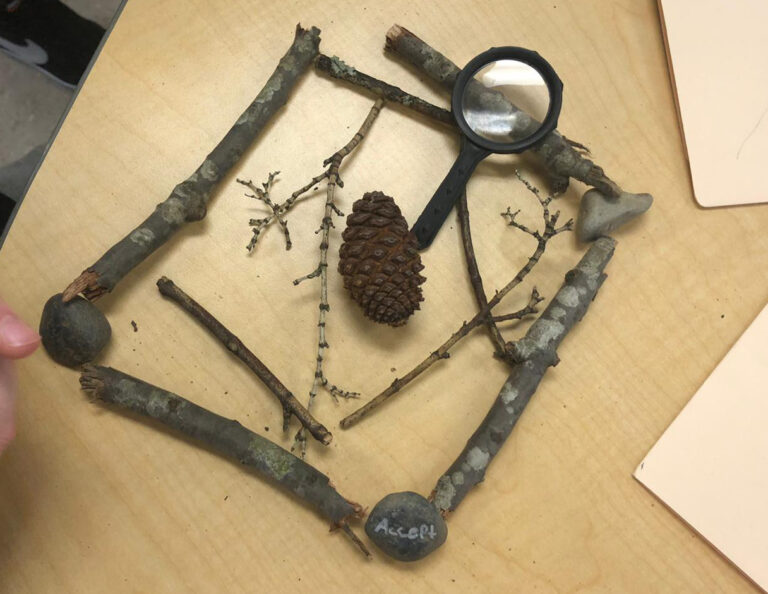
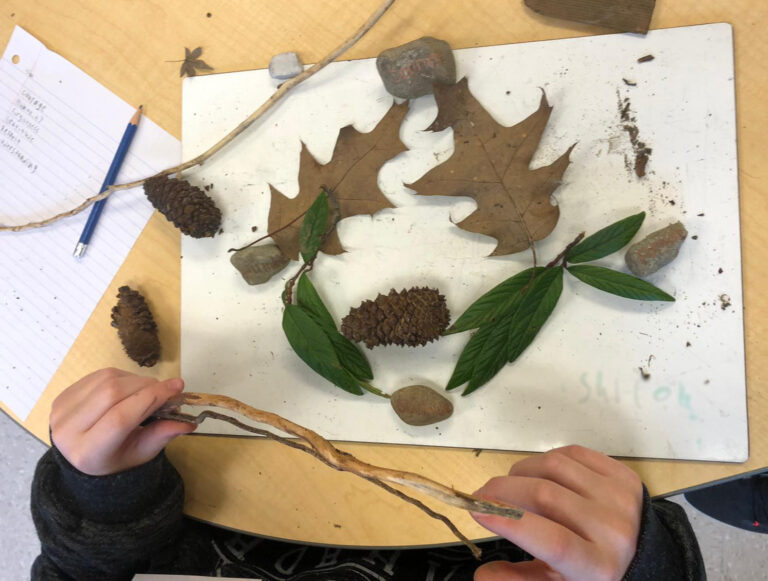
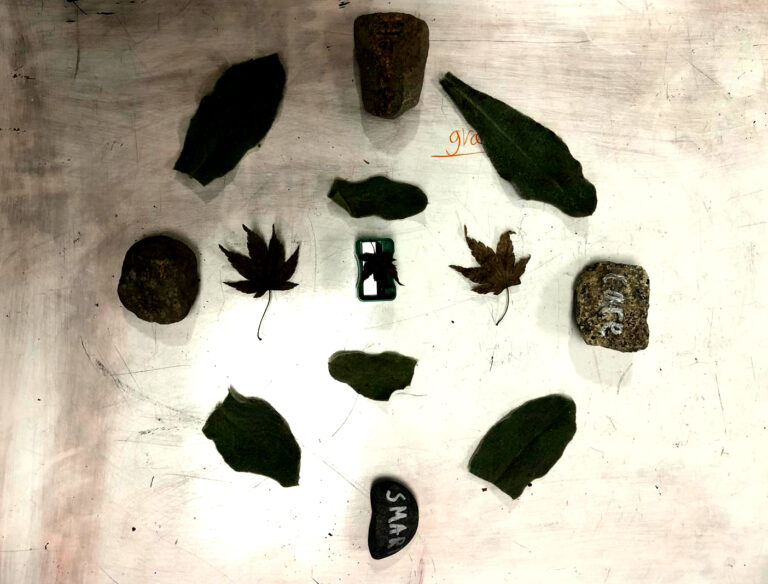
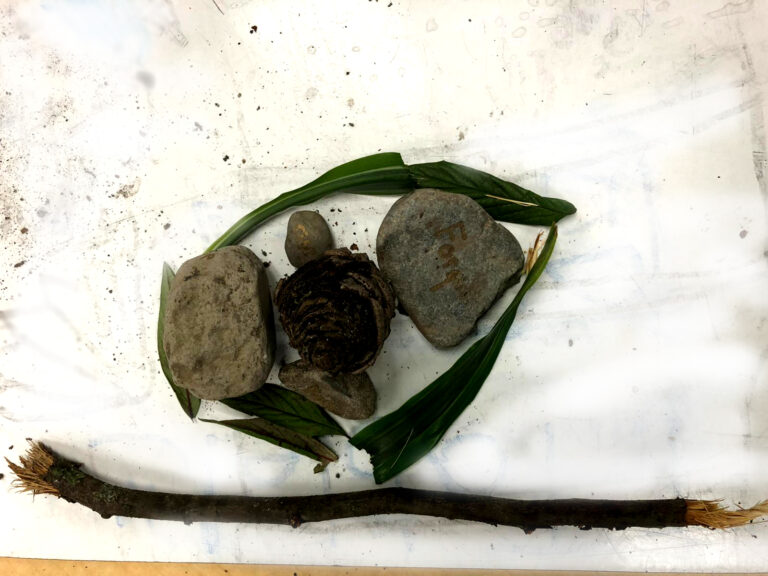
When the writing was complete, each student selected one rock and put it in the centre, with the other 4 ‘gateway’ rocks around it. Students built their mandalas from the centre out. They were encouraged to add other found objects they had brought, such as leaves and sticks to the mandala. Once we had a chance to see all of them, they were dismantled. I was amazed at how different, creative, accessible and meaningful each one was.
Next, students built a second mandala, but this time as a table group. Students noticed that working together had both challenges and benefits. Work equity was hard to establish and people had to compromise but there were more resources and the work got done faster.
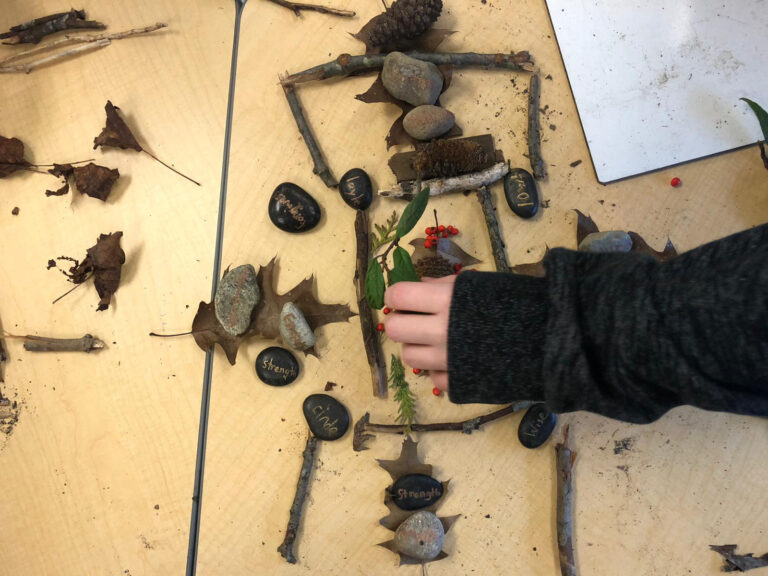
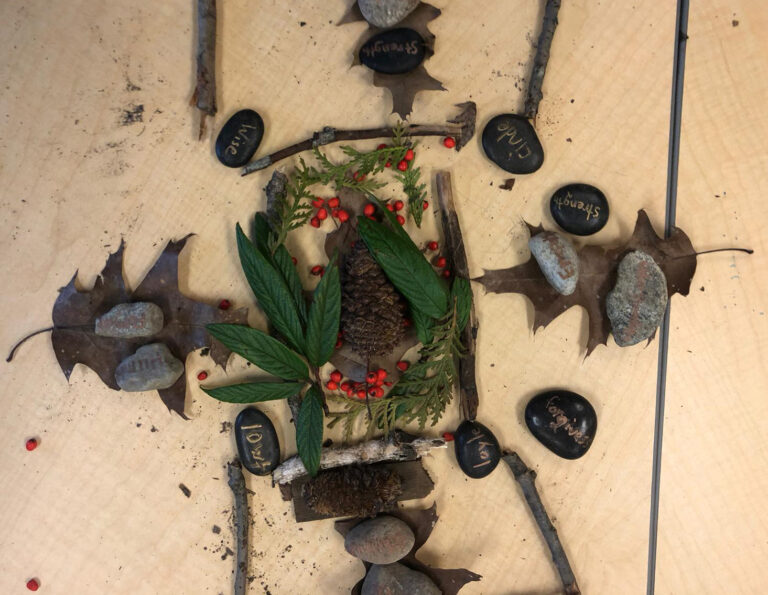
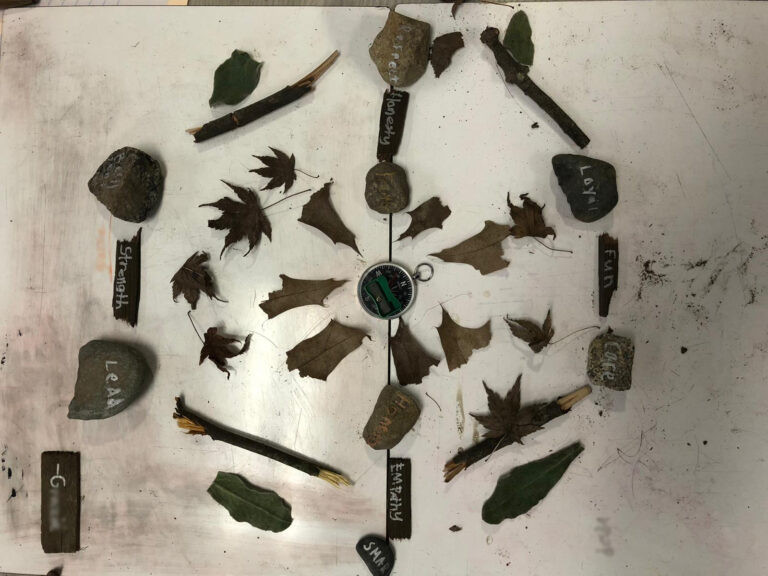
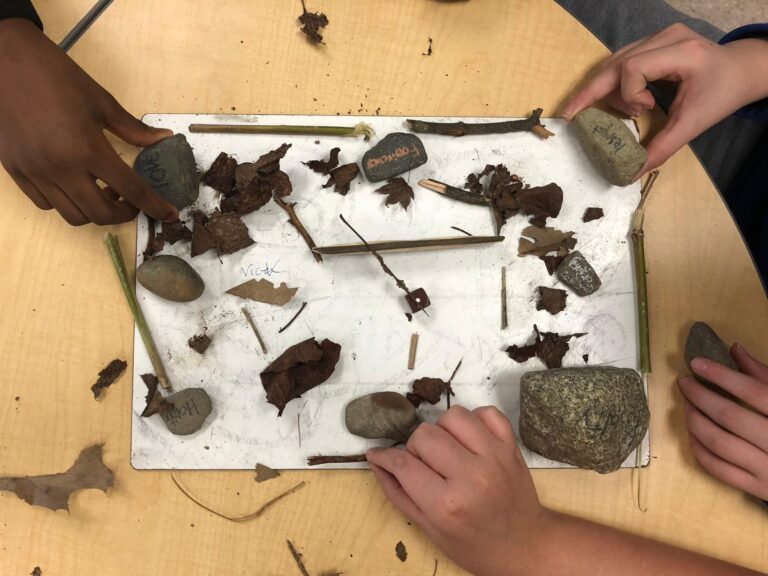
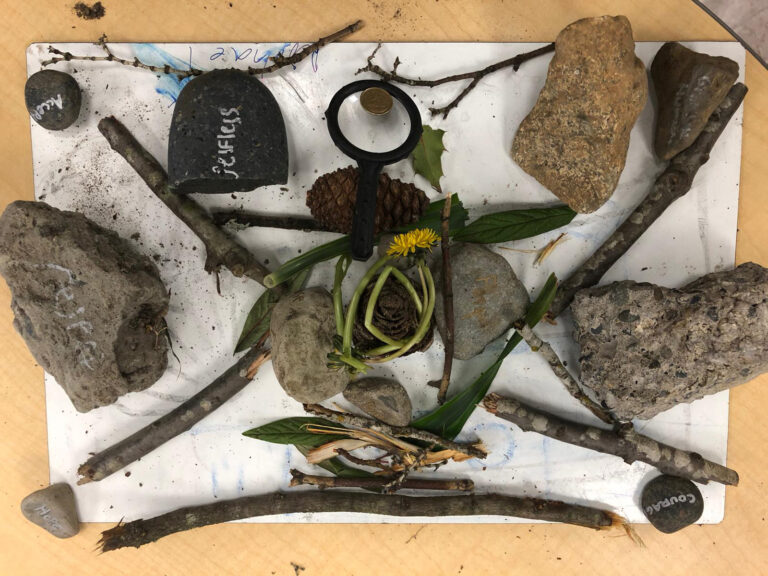
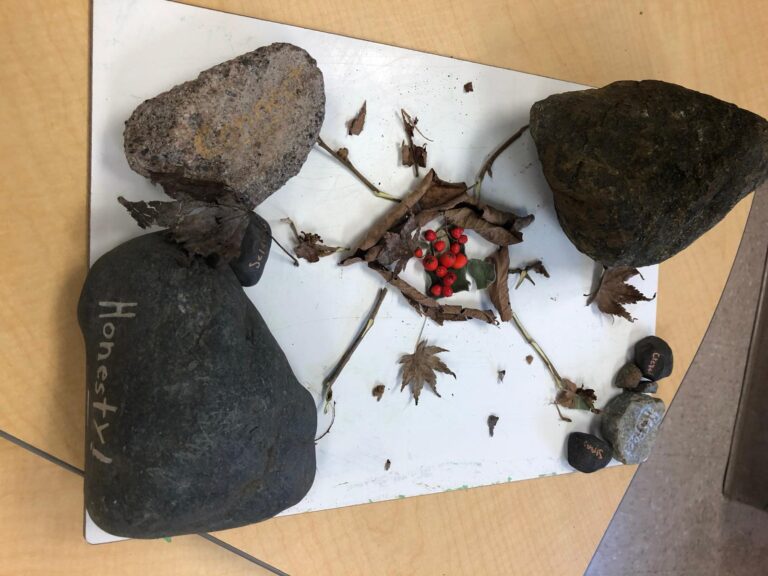
Art and conversation go hand in hand. Sheniz shared her thoughts on what it means to be an ancestor in training as we finished our mandalas. For her it means that whatever she does now will affect the next generation. She wants people to benefit from what she leaves behind.
Then she asked students to share their thoughts with a few poetry prompts. Drawing on but a few of their collective ideas here is the poem that emerged:
To be an ancestor in training is to hold learnings that you received from others.
To be an ancestor in training is to know where you need to go, your direction in life.
To be an ancestor in training is to choose the right path.
To be an ancestor in training is to be humble, forgiving, strong and resilient.
A lot of transformation occurred in our hour and a half with Sheniz. I would go so far as to say that her workshop changed how we see ourselves, our communities and our life purposes. I would say we found something today, something valuable that will not easily be forgotten, something to hold on to, to take away and share.
As we wrapped up with our concluding circle, students were asked to acknowledge what quality of leadership lives in them.
Here are a few of their reflections: I am selfless. I am courageous. I am loyal. I am honest. I am helpful. I have understanding. I am respectful. I am authentic. I am forgiving. I listen. I will step up and fight if I have to.
If the future were a mandala and these students its architects, I’d say it sure is in good hands!
